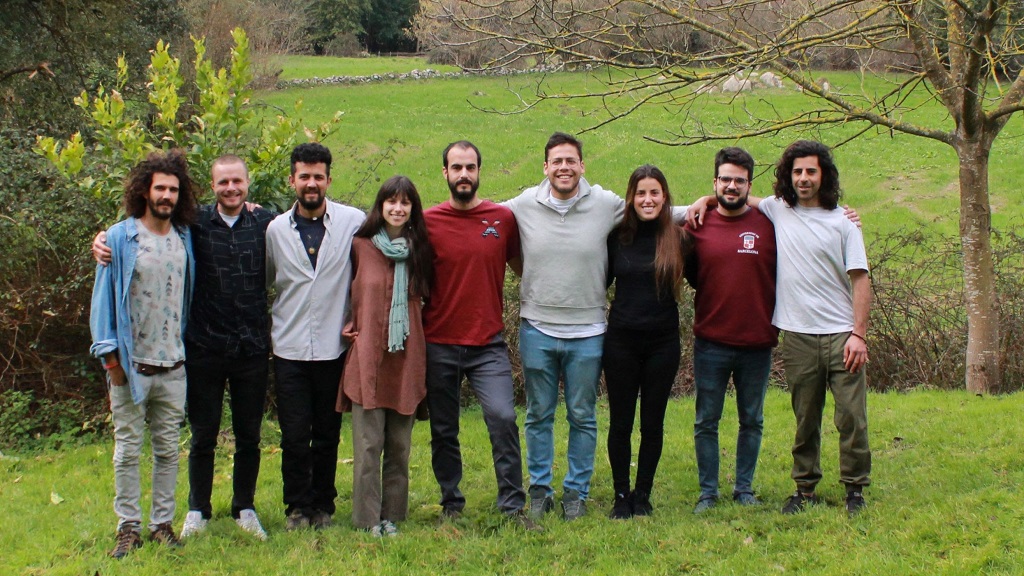
The small organic producers in the agri-food sector They have used technology to reach the final consumer. However, it was more difficult access other larger clients such as schools, hospitals or restaurants. This is exactly what the Plant on Demand social enterprise solves, a solution that allows these small producers to digitize their business and join cooperatives and hubs (logistics and collection centers) in order to meet the demand of large customers on a regular basis.
The company, founded in 2019 by seven friends with a vocation to create a fairer and more ecological world, was born with the aim of promoting new models of production and consumption more sustainable and ethical. Its solution offers technological support to thousands of small organic producers so that they can optimize their value chain, be more efficient, access new markets and improve the profitability of their business. The ultimate goal is to empower farmers and ranchers, promote a decent life in rural areas and promote the ecological transition through digital transformation.
To this end, the social enterprise has developed a technological platform for the digitization of agroecological initiatives in pay-per-use (SaaS) mode. Its technology allows, on the one hand, that these small independent organic producers can digitize the management of their business with tools for e-commerce, invoicing, payment management, traceability, logistics management and picking. And on the other, that they can be grouped into food hubs (logistics centres), cooperatives and marketplaces, coordinating with each other to offer a joint sale of products with which to reach new customer profiles.
“We want to give autonomy to these small producers so that they can be self-sufficient. With our technology they can turn the current production systems and distribution channels upside down, but to do so they must be accompanied by a structural movement, supported by public administrations, which are often the ones that finance digitization processes, and by the society as a whole. We are a technological partner, one more piece of the gear that contributes to everything working properly”, Explain Natalie Valley, CEO and co-founder of Plant on Demand.
Collaboration with local governments and schools of various Autonomous Communities.
In these two years, the social enterprise has closed agreements with several local and autonomous administrations of Galicia, Navarra and Valencian Community, supporting its public policies to boost local economies and sustainable production. More than 200 small organic producers, through 65 cooperatives and food hubs, are already benefiting from its platform, the only one with these characteristics in Spain, and they expect to triple the number of customers next year.
In addition, Plant on Demand has been collaborating since last January with several initiatives of EcoDining, whose objective is to transform the food management of schools so that they can offer students and teachers a diet based on organic, local, more sustainable products with less environmental impact. Through their hubs, they group products within the same geographical area to supply more than 25 schools in Galicia, the Valencian Community and Castilla y León.
Plant On Demand, which was launched with an initial investment of €140,000 contributed by the founding partners, closed its first round of investment of 100,000 euros with Dacsa Group, after passing through the KM ZERO Food Innovation Hub program. Now, the company wants to keep growing. To do this, it has opened a round of participatory financing to obtain up to €500,000 of investment in La Bolsa Social, a Spanish platform authorized by the CNMV that connects impact investors and companies that generate a positive social and/or environmental impact.
This amount will be supplemented with €230,000 from an ENISA loan and another €300,000 from other sources (technological patronage plan and public subsidies). The capital will be used mainly to optimize its technology and expand the profile of users who can use its platform and gain scalability. Additionally, the company is closing public financing (Next Generation Funds, Neotech Women, supra-autonomous operating groups, European financing) for a value of between €200,000 and €600,000 and philanthropic financing through the Daniel and Nina Carasso Foundation.



